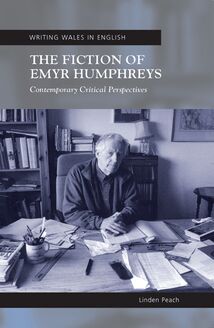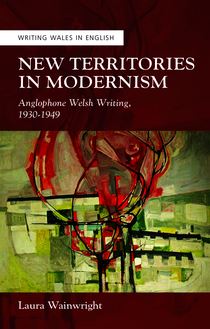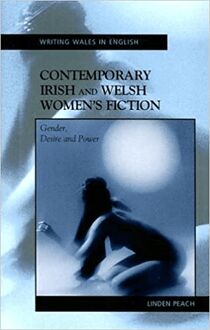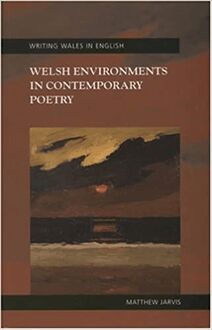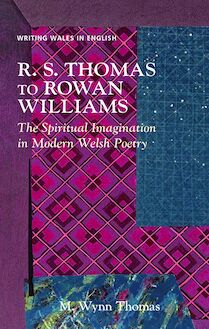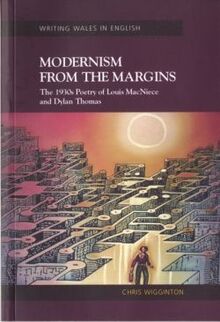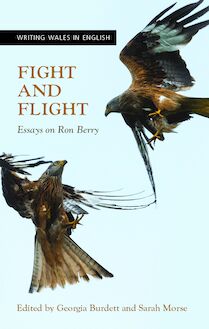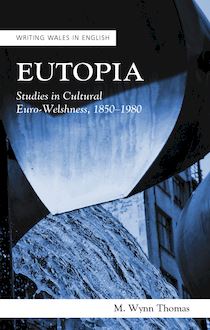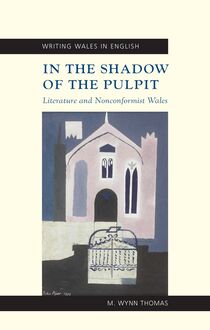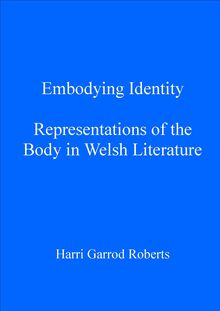-
 Univers
Univers
-
 Ebooks
Ebooks
-
 Livres audio
Livres audio
-
 Presse
Presse
-
 Podcasts
Podcasts
-
 BD
BD
-
 Documents
Documents
-
- Cours
- Révisions
- Ressources pédagogiques
- Sciences de l’éducation
- Manuels scolaires
- Langues
- Travaux de classe
- Annales de BEP
- Etudes supérieures
- Maternelle et primaire
- Fiches de lecture
- Orientation scolaire
- Méthodologie
- Corrigés de devoir
- Annales d’examens et concours
- Annales du bac
- Annales du brevet
- Rapports de stage
La lecture à portée de main
Découvre YouScribe en t'inscrivant gratuitement
Je m'inscrisDécouvre YouScribe en t'inscrivant gratuitement
Je m'inscrisEn savoir plus
En savoir plus

Description
Sujets
Informations
| Publié par | University of Wales Press |
| Date de parution | 15 septembre 2013 |
| Nombre de lectures | 0 |
| EAN13 | 9780708326657 |
| Langue | English |
| Poids de l'ouvrage | 3 Mo |
Informations légales : prix de location à la page 0,0650€. Cette information est donnée uniquement à titre indicatif conformément à la législation en vigueur.
Extrait
00 Prelims After Raymond Williams_ 2013_8_8:Writing Wales in English prelims.qxd 08/08/2013 12:10 Page i
After Raymond Williams
Writing Wales in English 00 Prelims After Raymond Williams_ 2013_8_8:Writing Wales in English prelims.qxd 08/08/2013 12:10 Page ii
CREW series of Critical and Scholarly Studies
General Editor: Professor M. Wynn Thomas (CREW, Swansea
University)
This CREW series is dedicated to Emyr Humphreys, a major figure in the
literary culture of modern Wales, a founding patron of the Centre for
Research into the English Literature and Language of Wales, and, along with
Gillian Clarke and Seamus Heaney, one of CREW’s Honorary Associates.
Grateful thanks are extended to Richard Dynevor for making this series
possible.
Other titles in the series
Stephen Knight, A Hundred Years of Fiction (978-0-7083-1846-1)
Barbara Prys-Williams, Twentieth-century Autobiography
(978-07083-1891-1)
Kirsti Bohata, Postcolonialism Revisted (978-0-7083-1892-8)
Chris Wigginton, Modernism from the Margins (978-0-7083-1927-7)
Linden Peach, Contemporary Irish and Welsh Women’s Fiction
(9780-7083-1998-7)
Sarah Prescott, Eighteenth-Century Writing from Wales: Bards and
Britons (978-0-7083-2053-2)00 Prelims After Raymond Williams_ 2013_8_8:Writing Wales in English prelims.qxd 08/08/2013 12:10 Page iii
After Raymond Williams:
Cultural Materialism and the
Break-Up of Britain
Writing Wales in English
HYWEL ROWLAND DIX
UNIVERSITY OF WALES PRESS
CARDIFF
200800 Prelims After Raymond Williams_ 2013_8_8:Writing Wales in English prelims.qxd 08/08/2013 12:10 Page iv
© Hywel Rowland Dix, 2013
Originally published in 2008
New edition published 2013
All rights reserved. No part of this book may be reproduced, stored in a
retrieval system, or transmitted, in any form or by any means, electronic,
mechanical, photocopying, recording or otherwise, without clearance from the
University of Wales Press, 10 Columbus Walk, Brigantine Place, Cardiff, CF10
4UP.
www.wales.ac.uk/press
British Library Cataloguing-in-Publication Data
A catalogue record for this book is available from the British Library.
ISBN 978-0-7083-26640
e.ISBN 978-0-7083-26657
The right of Hywel Rowland Dix to be identified as author of this work
has been asserted by him in accordance with sections 77 and 78 of the
Copyright, Designs and Patents
Acts 1988
Recommended text
Typeset in Wales by Eira Fenn Gaunt, Cardiff
Printed by CPI Antony Rowe, Chippenham, Wiltshire00 Prelims After Raymond Williams_ 2013_8_8:Writing Wales in English prelims.qxd 08/08/2013 12:10 Page v
CONTENTS
General Editor’s Preface vii
Acknowledgements ix
List of Abbreviations x
Foreword to the New Edition xi
Introduction: Williams and Modernity 1
1. Towards a Materialism of Culture 25
2. The Welsh Identity of Raymond Williams 56
3. Universities – Hard and Soft 85
4. Postcolonial Britain 111
5. Williams, Film and the Break-Up of Britain 143
6. A Reconsidered Conclusion: Post-British Williams? 173
Notes 191
Bibliography 201
Index 21700 Prelims After Raymond Williams_ 2013_8_8:Writing Wales in English prelims.qxd 08/08/2013 12:10 Page vi00 Prelims After Raymond Williams_ 2013_8_8:Writing Wales in English prelims.qxd 08/08/2013 12:10 Page vii
GENERAL EDITOR’S PREFACE
The aim of this series is to produce a body of scholarly and critical work
that reflects the richness and variety of the English-language literature
of modern Wales. Drawing upon the expertise both of established special -
ists and of younger scholars, it will seek to take advantage of the concepts,
models and discourses current in the best contemporary studies to
promote a better understanding of the literature's signifi cance, viewed
not only as an expression of Welsh culture but also as an instance of
modern literatures in English world-wide. In addition, it will seek to
make available the scholarly materials (such as bibliographies) necessary
for this kind of advanced, informed study.
M. Wynn Thomas,
Director, CREW (Centre for Research into the English Language and
Literature of Wales)
Swansea University00 Prelims After Raymond Williams_ 2013_8_8:Writing Wales in English prelims.qxd 08/08/2013 12:10 Page viii00 Prelims After Raymond Williams_ 2013_8_8:Writing Wales in English prelims.qxd 08/08/2013 12:10 Page ix
ACKNOWLEDGEMENTS
This book began life as a doctoral thesis at the University of Glamorgan.
I would like to thank Jane Aaron and Jeff Wallace for giving me the
opportunity to undertake the research which led to its writing. Both of
them have been extremely generous in their time and in their criticism of
early drafts of the project.
Other friends and colleagues who made the University of
Glamorgan a stimulating and supportive environment in which to
carry out research were Steve Blandford, Gavin Edwards, Claire Flay,
Diana Wallace, Alyn Webley and Martin Willis.
I am grateful to Professor Dai Smith, currently of Swansea
University, for giving me the opportunity to view certain Raymond
Williams manu scripts first-hand, and for taking the time to comment
on early versions of some of this work.
It would have been impossible to produce a study of this kind without
engaging explicitly with Tom Nairn’s seminal book The Break-Up of
Britain, as well as with the entire Raymond Williams oeuvre. My debt
to both writers is fully acknowledged.
Ever since publication of the first edition of After Raymond Williams
my most generous and loving reader has been my partner Rosemary
Edwards whose willingness to listen to me trying out ideas made it
seem worth writing them up. Finally, I would like to thank my family,
Lesley Dix, Andrew Dix and Gareth Dix for showing an enthusiastic and
encouraging attitude through out the period of research. In a real sense,
my first experiences of crossing the many different internal borders of
the United Kingdom were provided by my grandfather Leslie Davies. It
saddens me more than I can say that he did not survive to see this
project completed.00 Prelims After Raymond Williams_ 2013_8_8:Writing Wales in English prelims.qxd 08/08/2013 12:10 Page x
ABBREVIATIONS
A full bibliographic entry is provided the first time each book by
Raymond Williams is referred to in the text. Thereafter, the following
abbreviations are used:
BC Border Country (1960)
CC The Country and the City (1973)
CS Culture and Society (1958)
DIB Drama from Ibsen to Brecht (1968)
DIE Drama from Ibsen to Eliot (1952)
EN The English Novel from Dickens to Lawrence (1970)
FM The Fight for Manod (1979)
L Loyalties (1985)
LR The Long Revolution (1961)
ML Marxism and Literature (1977)
PF Preface to Film (1954)
PL Politics and Letters (1979)
PM The Politics of Modernism (1989)
PMC Problems in Materialism and Culture (1980)
RH Resources of Hope (1988)
SG Second Generation (1984)
T Television: Technology and Cultural Form (1974)
T2000 Towards 2000 (1983)
V The Volunteers (1978)
WCS What I Came to Say (1989)
WS Writing in Society (1984)
WSW Who Speaks for Wales? (2003)00 Prelims After Raymond Williams_ 2013_8_8:Writing Wales in English prelims.qxd 08/08/2013 12:10 Page xi
FOREWORD TO THE NEW EDITION
Since the first edition of this book was published, there have been a
number of important developments in the political process of devolution
around the United Kingdom. In Wales, the nationalist political party
Plaid Cymru experienced its first period of office in the so-called One
Wales Assembly coalition with the Welsh Labour Party between 2007 and
2011. During the same period, the limited legislative powers introduced
by the 2006 Government of Wales Act were enhanced after the 2011 refer-
endum on law-making powers, resulting in the Welsh Assembly’s status
being increased to that of Welsh Government. In Northern Ireland,
Martin McGuinness of the Irish Republican political party Sinn Féin
retained the position of Deputy First Minister in the province’s
powersharing Executive following the 2011 Assembly election, in which the
party increased both its share of the popular vote and its number of
seats. In Scotland, the Scottish National Party has become a party of
government and a timetable has been set for holding a referendum on
potential independ ence from the rest of the United Kingdom. Indeed, it
seems likely that of the many different questions being asked of British
political life in the second decade of the twenty-first century, one with
among the most far-reaching implications will be: what will the people
of Scotland vote?
It will be argued here that this question has political and cultural
consequences that extend far beyond the Scottish border. It will also
be argued, however, that behind the question, ‘What will the people of
Scotland vote?’ lies another question of almost equal contemporary
cultural importance. This second question is not what will the Scottish
people vote, but how will they decide? To move from the surface question
relating to the potential outcome of a proposed referendum to a deeper
theoretical question about how the electorate will make their decisions
is to open up important further questions of criteria, experience, judge -
ment and evidence: what are the benchmarks by which the Scottish
people will measure their sense of nationhood? How will they identify00 Prelims After Raymond Williams_ 2013_8_8:Writing Wales in English prelims.qxd 08/08/2013 12:10 Page xii
xii AFTER RAYMOND WILLIAMS
and articulate those benchmarks? Is Scottish nationalism a phenom -
enon that can only be extrapolated through political separatism, or does
it have a cultural element that is able to flourish with or without full
independence? What in any case is the relationship between a national
culture and the politics of national independence movements? These are
the questions that the Scottish voters will have to ask themselves when
deciding whether or not to vote for full political independence from the
rest of the United Kingdom. In other words, just as answering the
question, ‘What will the Scottish people vote?’ has major imp
-
 Univers
Univers
-
 Ebooks
Ebooks
-
 Livres audio
Livres audio
-
 Presse
Presse
-
 Podcasts
Podcasts
-
 BD
BD
-
 Documents
Documents
-
Jeunesse
-
Littérature
-
Ressources professionnelles
-
Santé et bien-être
-
Savoirs
-
Education
-
Loisirs et hobbies
-
Art, musique et cinéma
-
Actualité et débat de société
-
Jeunesse
-
Littérature
-
Ressources professionnelles
-
Santé et bien-être
-
Savoirs
-
Education
-
Loisirs et hobbies
-
Art, musique et cinéma
-
Actualité et débat de société
-
Actualités
-
Lifestyle
-
Presse jeunesse
-
Presse professionnelle
-
Pratique
-
Presse sportive
-
Presse internationale
-
Culture & Médias
-
Action et Aventures
-
Science-fiction et Fantasy
-
Société
-
Jeunesse
-
Littérature
-
Ressources professionnelles
-
Santé et bien-être
-
Savoirs
-
Education
-
Loisirs et hobbies
-
Art, musique et cinéma
-
Actualité et débat de société
- Cours
- Révisions
- Ressources pédagogiques
- Sciences de l’éducation
- Manuels scolaires
- Langues
- Travaux de classe
- Annales de BEP
- Etudes supérieures
- Maternelle et primaire
- Fiches de lecture
- Orientation scolaire
- Méthodologie
- Corrigés de devoir
- Annales d’examens et concours
- Annales du bac
- Annales du brevet
- Rapports de stage
